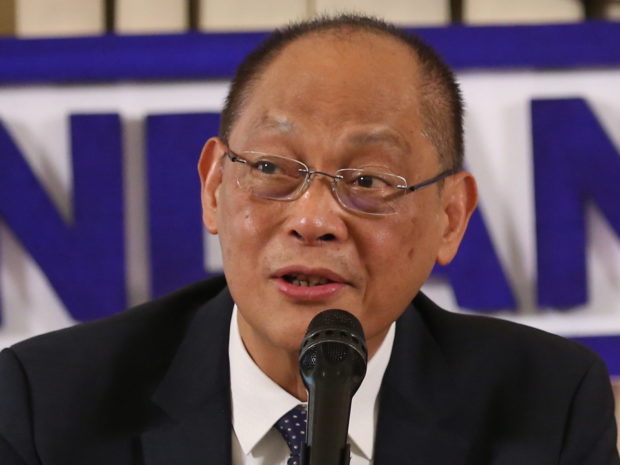Benjamin Diokno says PH to grow up to 7.5 percent despite BSP rate hike
MANILA, Philippines—Mark his words.
The Philippine economy is poised to sustain economic recovery and grow 6.5 to 7.5 percent this year as targeted despite the Bangko Sentral ng Pilipinas’ (BSP) surprise and supersized interest rate hike on Thursday (July 14), Finance Secretary Benjamin Diokno said.
“Absolutely” was Diokno’s reply when asked if the higher interest to be slapped on bank borrowings would still allow the economy to expand at the slower pace projected by the government. Following the off-cycle 75-basis point (bp) hike by the BSP’s Monetary Board to rein-in high inflation and arrest the peso’s slide, the policy rate now stood at 3.25 percent.
“The economy continues to be robust to absorb the recent monetary policy rate increase given the favorable expansion of economic activity early this year,” said Diokno.
“The Development Budget Coordination Committee (DBCC) target range for the gross domestic product (GDP) growth rate has been set to be able to incorporate the various pace of monetary policy normalization by the BSP,” added Diokno, who heads President Ferdinand Marcos Jr.’s economic team.
After last Friday’s DBCC meeting, Diokno said economic growth may slow in the second half of 2022, compared with the better-than-expected first-quarter and possibly double-digit or over 10-percent second-quarter GDP growth rates.
This follows the BSP’s string of rate hikes, which may temper borrowings and investments both of households and businesses. The DBCC had downscaled this year’s growth goal from the 7 to 8 percent target left behind by the Duterte administration.
But Diokno pointed out that the Philippine economy was also growing by about 6 percent yearly pre-pandemic, when the BSP’s policy rate stood at 4 percent.
“We estimate that the economy will be back to where it was before the pandemic by the middle of this year, or by the third quarter of 2022 at the latest. The BSP simply accelerated the normalization process,” Diokno said.
For the entire year, Diokno remained optimistic of economic expansion, which he said will be “supported by the maintenance of loosened quarantine restrictions as well as the positive impact of structural reforms”.
These reforms included the Corporate Recovery and Tax Incentives for Enterprises (CREATE) Act, the Financial Institutions Strategic Transfer (FIST) Act, as well as amendments to the Foreign Investments Act, Public Service Act, and Retail Trade Liberalization Act.
“The national government will continue to adopt a gradual and calibrated path of fiscal consolidation to help preserve the strong growth momentum,” Diokno said, referring to the Marcos administration’s plan to gradually reduce the public debt ratio and revert the budget deficit to pre-pandemic levels equivalent to 3 percent of GDP by 2028.
Diokno said he will brief Marcos on the justifications of the BSP’s aggressive rate hike as well as its policy implications.
Sought for comment, former BSP deputy governor Diwa Guinigundo said he was not surprised that Governor Felipe Medalla and the BSP “came out appropriately aggressive in an off-cycle meeting.”
“The BSP has a great track record in taming inflation and ensuring inflation expectations remain moored,” Guinigundo said.
“It’s timely for the BSP to focus on stabilizing inflation and the exchange rate because both would also affect market rates. Uncertainty as to the direction of policy when inflation is hitting historic highs and the peso is performing poorly could also push interest rates and consequently debt servicing costs,” Guinigundo added.
Guinigundo nonetheless said that “while this adjustment in the policy rate sends market signal to the right direction of interest rates, this should not necessarily immediately translate to higher debt servicing” because “all would depend on relative demand for government debt instruments and the need for public spending.”
TSB

